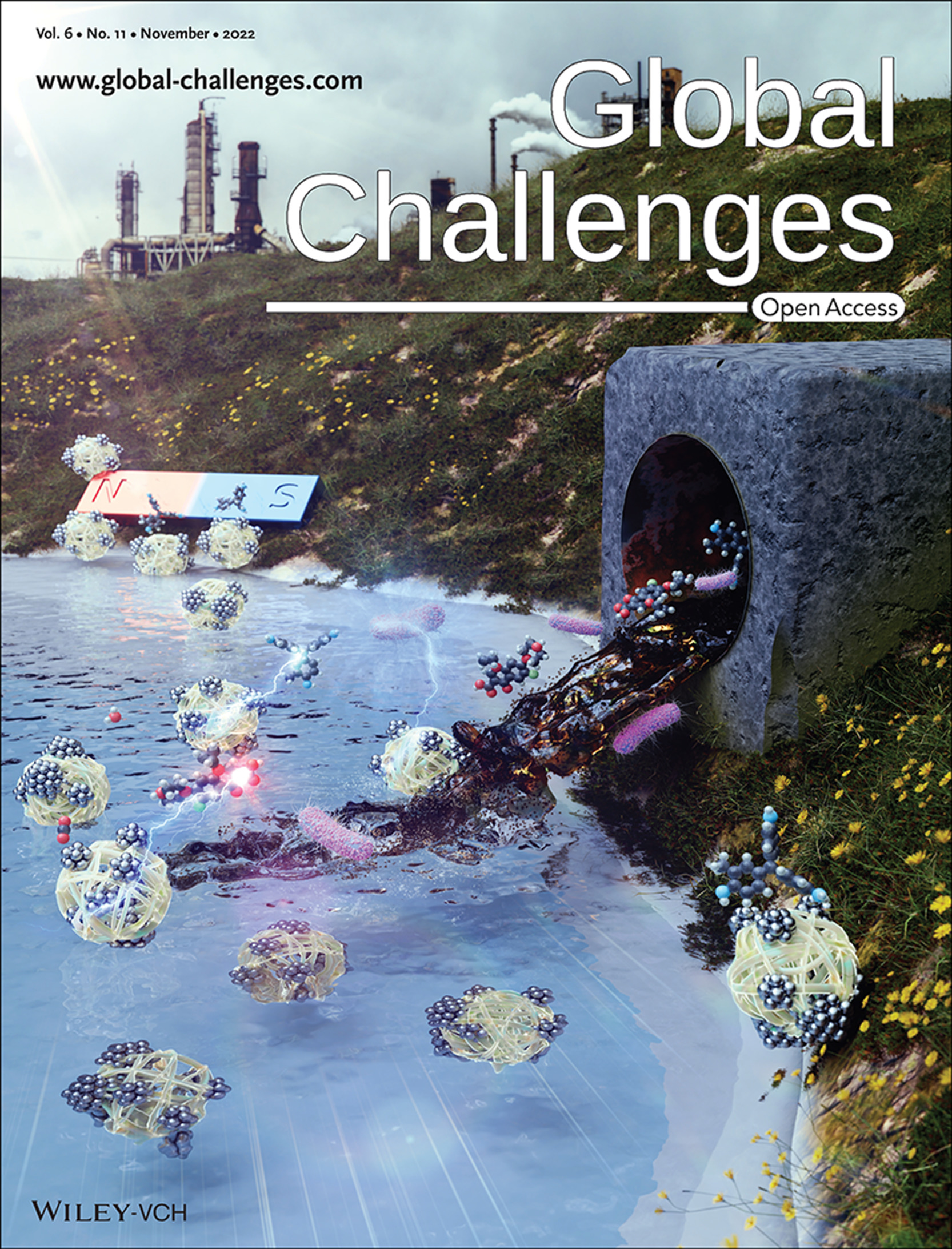Adsorption and advanced oxidation processes, especially photocatalysis, are amongst the most common water treatment methodologies. Unfortunately, using each of these techniques independently does not fully eliminate the pollutants of diverse nature, which are present in wastewater. Here, an avenue for multifunctional materials for water treatment is opened by reporting for the first time the preparation, characterization, and study of the properties of a novel multifunctional nanocomposite with both adsorption and visible-light-driven photocatalysis abilities. These multifunctional nanocomposites, namely iron (II, III) oxide/poly(N-isopropylacrylamide-co-methacrylic acid)/silver-titanium dioxide (Fe3O4/P(NIPAM-co-MAA)/Ag-TiO2), are prepared by combining magnetic polymeric microspheres (Fe3O4/P(NIPAM-co-MAA)) with silver-decorated titanium dioxide nanoparticles (Ag-TiO2 NPs). Cationic dyes, such as basic fuchsin (BF), can be adsorbed by the nanocomposites thanks to the carboxylic groups of Fe3O4/P(NIPAM-co-MAA) microspheres. Concomitantly, the presence of Ag-TiO2 NPs endows the system with the visible-light-driven photocatalytic degradation ability toward antibiotics such as ciprofloxacin (CIP) and norfloxacin (NFX). Furthermore, the proposed nanocomposites show antibacterial activity toward Escherichia coli (E. coli), thanks to the presence of silver nanoparticles (Ag NPs). Due to the superparamagnetic properties of iron (II, III) oxide nanoparticles (Fe3O4 NPs), the nanocomposites can be also recycled and reused, after the cleaning process, by using an external magnetic field.

Adsorption and advanced oxidation processes, especially photocatalysis, are amongst the most common water treatment methodologies. Unfortunately, using each of these techniques independently does not fully eliminate the pollutants of diverse nature, which are present in wastewater. Here, an avenue for multifunctional materials for water treatment is opened by reporting for the first time the preparation, characterization, and study of the properties of a novel multifunctional nanocomposite with both adsorption and visible-light-driven photocatalysis abilities. These multifunctional nanocomposites, namely iron (II, III) oxide/poly(N-isopropylacrylamide-co-methacrylic acid)/silver-titanium dioxide (Fe3O4/P(NIPAM-co-MAA)/Ag-TiO2), are prepared by combining magnetic polymeric microspheres (Fe3O4/P(NIPAM-co-MAA)) with silver-decorated titanium dioxide nanoparticles (Ag-TiO2 NPs). Cationic dyes, such as basic fuchsin (BF), can be adsorbed by the nanocomposites thanks to the carboxylic groups of Fe3O4/P(NIPAM-co-MAA) microspheres. Concomitantly, the presence of Ag-TiO2 NPs endows the system with the visible-light-driven photocatalytic degradation ability toward antibiotics such as ciprofloxacin (CIP) and norfloxacin (NFX). Furthermore, the proposed nanocomposites show antibacterial activity toward Escherichia coli (E. coli), thanks to the presence of silver nanoparticles (Ag NPs). Due to the superparamagnetic properties of iron (II, III) oxide nanoparticles (Fe3O4 NPs), the nanocomposites can be also recycled and reused, after the cleaning process, by using an external magnetic field.
